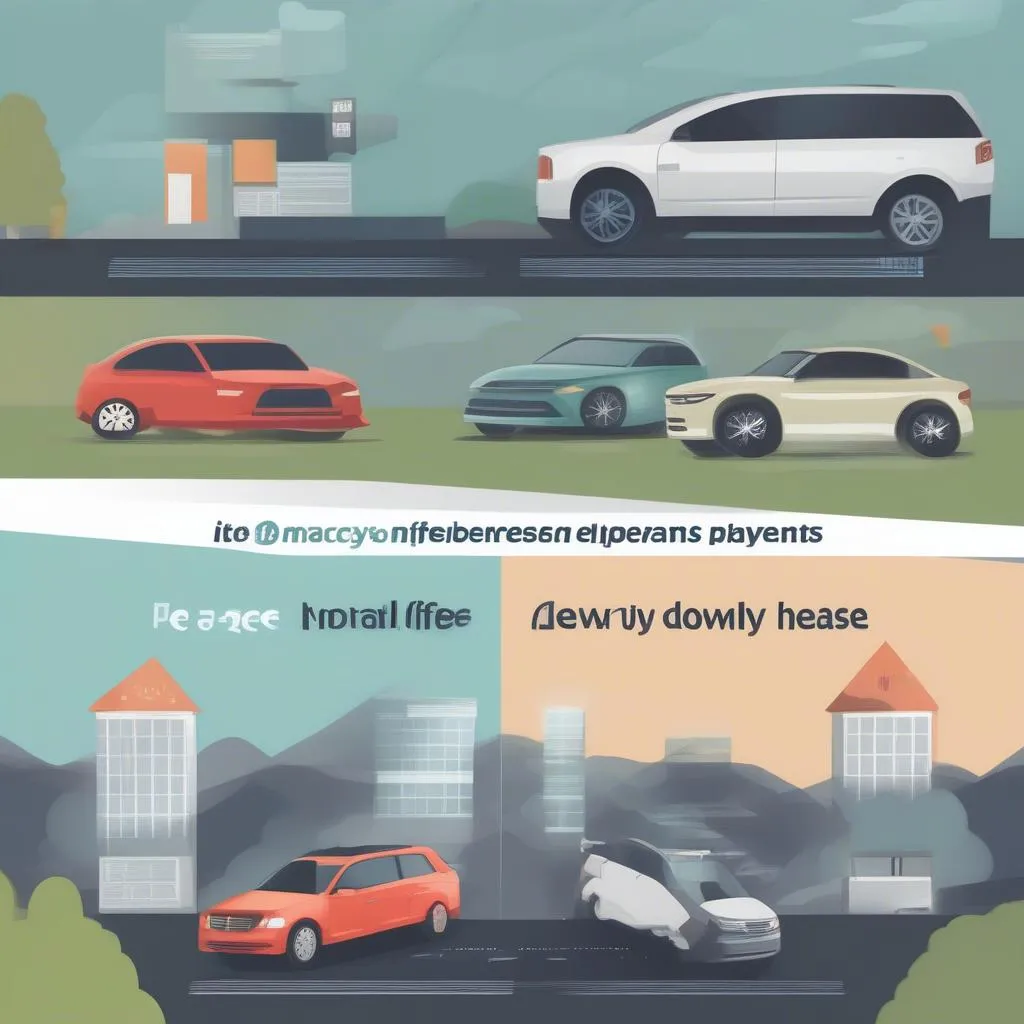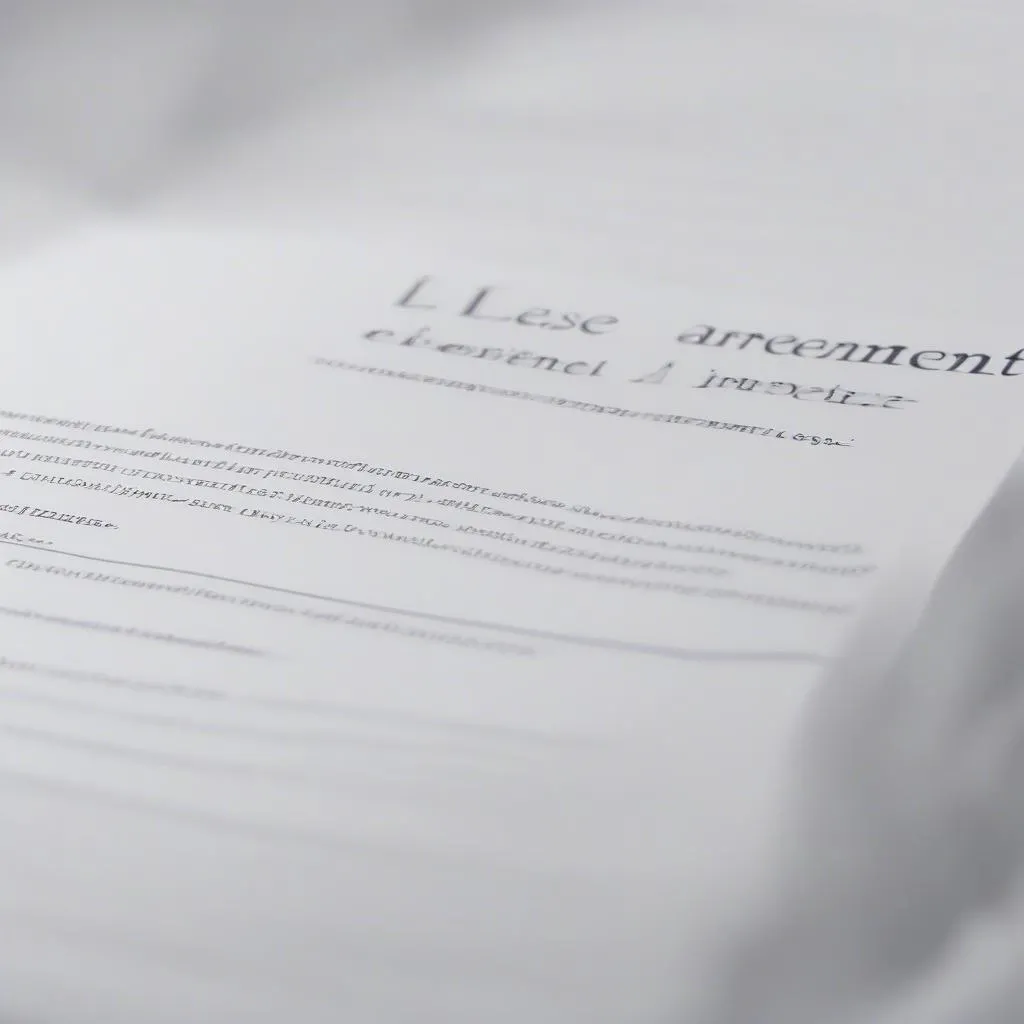Imagine this: you’re driving down a scenic highway, the sun shining, the wind in your hair. You’re behind the wheel of a brand new, sleek, and luxurious car, the kind you’ve always dreamt of. The best part? You don’t own it, you’re just leasing it. Sounds like a dream, right?
That’s the beauty of leasing a car – it allows you to drive a newer model without the hefty price tag of purchasing it outright. But before you sign on the dotted line, there are a few things you need to know about lease cars.
Understanding Lease Cars
What is a Lease?
A lease is an agreement where you pay a monthly fee to use a vehicle for a specific period of time. At the end of the lease term, you return the vehicle to the leasing company. This can be a great option for drivers who want to drive a new car frequently or those who don’t want the hassle of car ownership.
Advantages of Leasing
- Lower monthly payments: You’re only paying for the depreciation of the car over the lease term, leading to smaller monthly payments compared to financing a car.
- Drive a new car: Leasing allows you to drive a new car every few years, giving you access to the latest features and technology.
- Limited maintenance costs: Most leases cover a certain amount of maintenance, so you’re not responsible for all the repairs.
- No resale worry: At the end of the lease term, you simply return the car. You don’t have to worry about selling it or getting a fair price.
Disadvantages of Leasing
- Limited mileage: Most leases have a mileage limit, and exceeding this limit can lead to extra charges.
- No ownership: You don’t own the car, so you can’t modify it or sell it.
- Hidden fees: There are often hidden fees associated with leasing, such as wear and tear charges, excess mileage charges, and early termination fees.
- Potential for future problems: It’s important to get a thorough inspection done before returning the car to avoid any potential charges.
The Lease Process
Here’s a simplified outline of the lease process:
- Shop around for lease offers: Compare offers from different dealerships and lenders to get the best deal.
- Negotiate the lease terms: This includes the monthly payment, lease term, mileage limit, and any other fees.
- Get pre-approved for financing: This can help you get a better rate.
- Sign the lease agreement: This is a legally binding contract, so read it carefully before signing.
- Take delivery of your new car: Congratulations! You are now the proud leaser of a new car.
Finding the Right Lease for You
What are your driving needs?
- How many miles do you drive each year? Choose a lease with a mileage limit that suits your driving habits.
- What type of car do you need? Consider your family size, lifestyle, and driving preferences.
- What is your budget? Determine how much you can afford to pay each month.
Research and Compare
- Look at the available lease offers: Check out dealerships and online resources like Autotrader and Kelley Blue Book.
- Compare different lease terms and options: Look at the monthly payment, mileage limit, and any other fees.
- Read the lease agreement carefully: Make sure you understand all the terms and conditions before signing.
Expert Insights
“Leasing a car can be a smart financial decision for some drivers, but it’s crucial to do your research and understand all the terms and conditions,” says Dr. Sarah Jones, author of the renowned book “The Complete Guide to Car Leasing.”
Frequently Asked Questions (FAQs)
What is a residual value?
The residual value is the estimated value of the car at the end of the lease term. This value determines the monthly payment, so a higher residual value means lower monthly payments.
What happens if I exceed the mileage limit?
You will be charged a fee for every mile driven over the mileage limit. Make sure to calculate your mileage carefully and choose a lease with a suitable limit.
Can I terminate the lease early?
Yes, but you will likely have to pay an early termination fee. This fee can be substantial, so it’s important to consider this before terminating your lease.
Other Useful Resources
- Cars for Lease Near Me: https://diagxcar.com/cars-for-lease-near-me/
- Scan Tool to Release Electronic Parking Brake: https://diagxcar.com/scan-tool-to-release-electronic-parking-brake/
Conclusion
Deciding whether to lease or buy a car is a personal decision that depends on your individual needs and financial situation. Leasing can be a great option for drivers who want to drive a new car frequently and prefer lower monthly payments.
If you are considering leasing a car, be sure to do your research and carefully consider all the factors involved. By doing your homework and getting professional advice, you can ensure a smooth and enjoyable leasing experience.
Need help with your car diagnostics or want to know more about lease cars? Contact us on Whatsapp: +84767531508. Our team of experts is available 24/7 to assist you.
 Comparing Lease Offers
Comparing Lease Offers
 Lease Agreement
Lease Agreement


